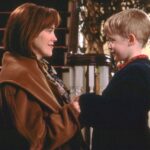People think they know all about the cocaine era of the 1980s. Movies, TV shows and documentaries galore have filled our heads with wild and violent imagery of mayhem and destruction.
In Scarface (1983), Al Pacino as Tony Montana proclaimed, “Say hello to my little friend,” launching a tradition of cocaine-related dramas with a body count exceeding that of many international conflicts. In the Netflix series Narcos, acts of mass slaughter at nightclubs and in restaurants are often filmed in slow motion, with sexy or sometimes ironic music underscoring the mayhem.
When it comes to cocaine stories, people expect violence, the more outlandish the better.
Navigating these attitudes was a primary concern when I began researching The Last Kilo: Willy Falcon and the Cocaine Empire that Seduced America (out Dec. 3 from William Morrow) In the 1980s, Willy Falcon, his brother Gustavo “Tavy” Falcon and their partner Salvatore “Sal” Magluta were the leaders of a cocaine distribution syndicate known as “Los Muchachos.”
This network, made up almost exclusively of Cuban exiles whose families fled Cuba in the wake of the Cuban Revolution, created a well-oiled smuggling network comprised of planes, powerboats and semi-tractor trailers based in Miami with outposts in Los Angeles, San Francisco, New York City, Chicago, Houston and elsewhere around the United States.
Over a 15-year period – from 1977 to 1992 – Los Muchachos imported 75 tons of pure cocaine with a street value over $2.6 billion, according to federal prosecutors. In interviews I conducted with Falcon for The Last Kilo, he contends that those numbers are low, estimating that he and his partners imported more like 700 tons of cocaine with a street value in the $50 billion range.
And they did it all with a minimum of violence.
There were some killings. In 1992, when Willy and Sal were indicted on smuggling and money laundering charges, four murders and numerous assaults took place that prosecutors believed were carried out by Los Muchachos, or someone on their behalf. To intimidate and silence potential witnesses, the supposition was that they had those people rubbed out. This made for explosive headlines in the Miami Herald and on television news programs, but the evidence connecting these killings to Willy or Sal was sketchy. Falcon was never charged with these crimes; Magluta was charged with some of the murders and found not guilty in court.
It turns out that a story from deep within the cocaine universe is still edgy and fascinating even without Uzis and Colombian neckties. The fact that Los Muchachos conducted their massive smuggling operation with minimal violence in the midst of what was without doubt, a violent universe, is one of the most unique stories to come out of the fabled cocaine era.
Like many of his generation, Falcon came to the U.S. as a young boy as part of the Freedom Flights, a series of planeloads of Cubans fleeing Fidel Castro’s Cuba for a better life. In 1977, Falcon was a popular, charismatic 19-year-old kid, recently married to his junior high-school sweetheart, when he was approached by Rafael “Chi Chi” Quintero, who was an esteemed leader of anti-Castro efforts.
Quintero and his overseers in the U.S. intelligence community had come up with a scheme to secretly purchase weapons for the Contras, who were seeking to stop the communist Sandinistas from gaining traction in Nicaragua. The plan was to import pure cocaine into the U.S. from sources in Latin America, sell the product in the U.S., and use that money to procure guns, ammunition and explosives to be shipped to the Contras in Central America.
Appealing to their sense of loyalty as “freedom fighters,” Quintero asked Falcon if he would be capable of selling the cocaine. These would be sizable shipments (their first load was 65 kilos of pure white powder). Remembered Falcon: “I was flattered that these individuals came to us … If we could help defeat the left-wing Sandinista Communists in Central America, we were helping to defeat Castro.”
“We’re in,” Falcon told Quintero and the other militant activists.
The emergence of Los Muchachos as the primary distributor of Colombian cocaine in the U.S. was, for a time, something that flew below the radar of American law enforcement. The Miami Cubans used planes, powerboats and semi-tractor trailers to import and transport massive shipments of the product. Los Muchachos, which eventually grew into a network of 40 or 50 narcos, benefited from a culture of secrecy that had been fostered by “la lucha,” the struggle to liberate Cuba.
Though Falcon and his crew soon moved on from selling kilos for la lucha to doing it solely for themselves (though they did remain financial benefactors of the anti-Castro underground for years), their origins as Cold War freedom fighters — with direct links to CIA operatives — became part of their mystique. Los Muchachos were thought to be untouchable by most everyone, including U.S. law enforcement.
Falcon presided over the organization with a light touch. A high school drop-out, as were Magluta and other leaders of the group, he nonetheless had impressive leadership skills.
I spent many hours interviewing Falcon in person and via Zoom and on the phone. He did not fit the mold of a sociopath or psychopath. None of the members of Los Muchachos that I interviewed — a dozen or more — seemed like gangsters. These were not hardened criminals who had done time in prison when they started in the cocaine business. They were young, working-class Cuban exiles, most of them married with children and extended families that depended on them. They had become involved in the business not out of a natural inclination towards crime, but because, as with Falcon, it fell into their lap. The cocaine era exploded all around them, and they seized on it as an opportunity, which led them to a world of untold riches.
They believed they were living the American Dream.
With Willy at the helm, Los Muchachos rode the wave of a massive cultural phenomenon. Blow became the party drug of choice from coast-to-coast, much of it supplied by the Cubans from South Florida. To the sound of a disco beat, yayo or perico, as the Latinos called it, became de rigueur at trendy nightclubs. In addition, the Falcon brothers, Magluta, and others in Los Muchachos became champion powerboat racers. The powerboat racing business was a highly effective means of laundering their drug profits, and their dominance in the sport elevated them to celebrity status in the city and beyond.
But then the War on Drugs kicked in. First the Reagan and then George H.W. Bush administrations underwrote a massive, unprecedented campaign of drug seizures, disruption and prosecution. Eventually, Falcon’s organization became seen as part of the “narcosphere,” an amorphous, borderless matrix of narco forces that shaped global politics and economies in North and South America. “Willy and Sal,” as the conspiracy was characterized in the press, became part of a network that included Pablo Escobar and the Cali Cartel in Colombia, Gen. Manuel Noriega and the narcosphere’s central banking system in Panama, and narco bosses in Mexico, as Los Muchachos shifted their delivery routes from the Caribbean islands to the Mexican border.
Never miss a story — sign up for PEOPLE’s free daily newsletter to stay up-to-date on the best of what PEOPLE has to offer , from celebrity news to compelling human interest stories.
Willy and Sal were captured in 1992. Falcon was arrested in Ft. Lauderdale and Sal in Miami Beach. A dedicated group of prosecutors built what seemed like an overwhelming case. But the two defendants were able to depend on something that the prosecutors did not fully comprehend: the ability of Willy and Sal to manipulate a sense of loyalty within South Florida’s Cuban exile community. The narcos were able to “fix” the jury with not one or two dirty jurors, but five, one of whom said they could depend on her for a not guilty verdict for no fee at all (the others received payments roughly around $100,000 each). The not guilty verdict by the jury shocked Miami and the U.S. Justice Department.
Eventually, Falcon reached a plea deal and was sentenced to 25 in prison. Magluta went to trial and was found guilty, receiving a sentence of 205 years. Tavy Falcon, who escaped apprehension at the time of the Los Muchachos indictment, disappeared with his wife and two children and remained at large for24 years. In 2017, he was captured and given a sentence of 11 years. His time was cut short by COVID, and in 2023 he was released under house arrest.
In my interviews with Falcon and the others, it became apparent to me that they had paid a heavy price for their years as cocaine royalty. Though their prosecutions and convictions on smuggling and money laundering charges involved no killings, violence or the usual mayhem associated with cocaine conspiracies, they received steep sentences. The consequences for these men and their families were severe – marriages were destroyed, and most of them became alienated from children who grew up without them around. By the time I interviewed these men, they were haunted for having screwed up the lives of their families and contributed to a business characterized by addiction, violence and so much destruction.
Even so, a few carried within their souls a crooked sense of pride. In a business characterized by murder, mayhem and betrayal, they had remained true to a code. They did not kill people as a matter of practice. They did not rip people off. They did not force their product on anyone. Most importantly, they had not snitched against their fellow Muchachos. They did the time, came out at the other end and were dealing with the consequences of the life they had chosen. They had once been the scourge of international law enforcement, and now their story had entered the annals of American underworld folklore. There was something to be said for that.
The Last Kilo: Willy Falcon and the Cocaine Empire That Seduced America by T.J. English comes out Dec. 3 and is available for preorder now, wherever books are sold.
Read the full article here










